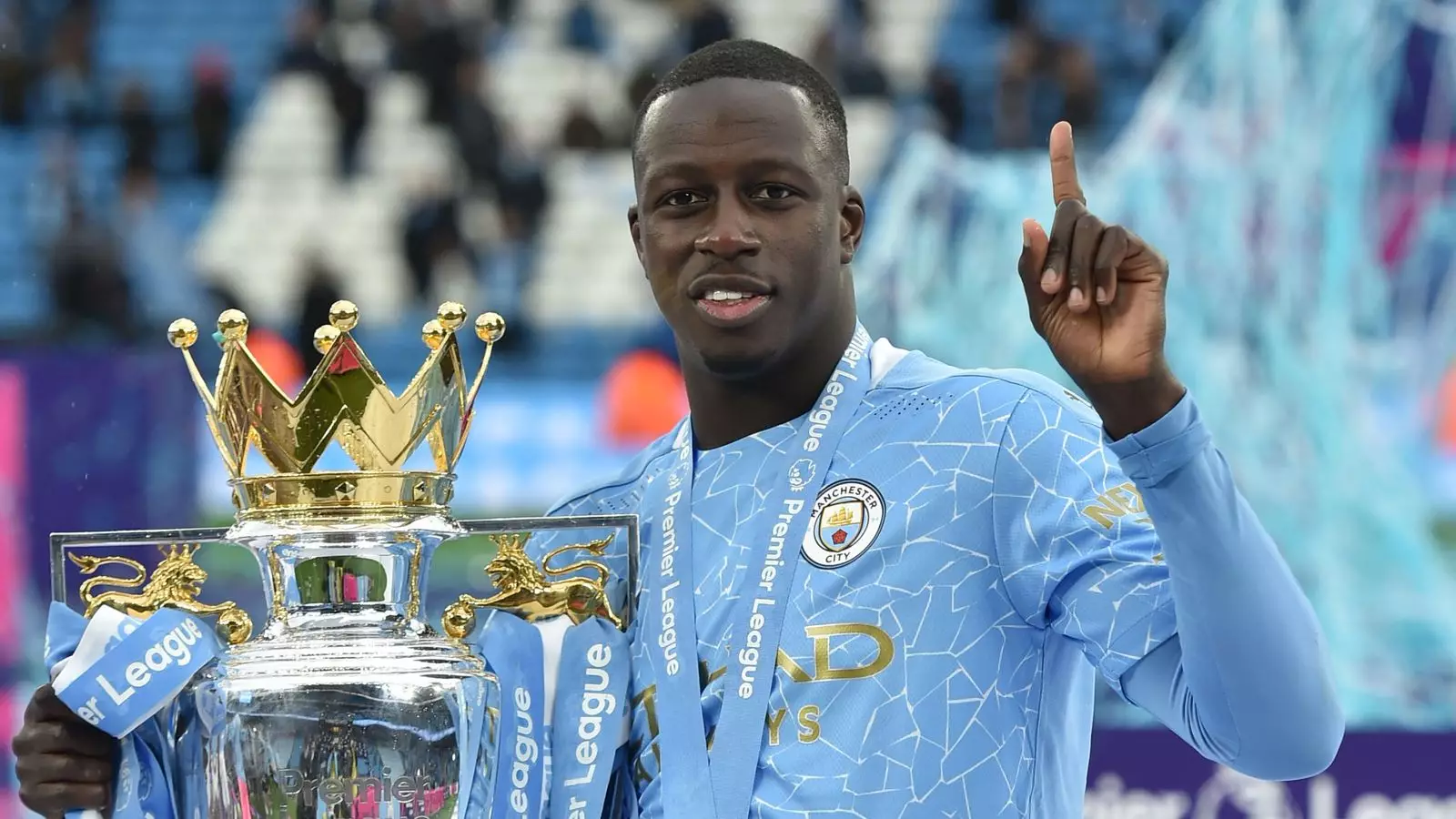The tale of Benjamin Mendy, a soccer player once praised for his exceptional athletic abilities, has taken a troubling turn that extends beyond the pitch. The legal battles and financial strife Mendy faces have captured public attention, not only due to the serious nature of his charges but also because of the implications these developments have for professional sports. Accused of rape and sexual assault, Mendy found himself in the daunting position of being stripped of his primary source of income, drawing attention to the precarious financial arrangements professional athletes often operate under. As the story unfolds, it raises significant questions about responsibility, loyalty, and the support structures surrounding high-profile athletes.
Withholding Wages Amid Serious Charges
The heart of Mendy’s legal conflict with Manchester City hinges on the club’s decision to withhold his hefty salary of £500,000 per month after he was charged in 2021. The employment tribunal has been the stage for revealing unsettling truths about the financial wellbeing of professional athletes once they find themselves embroiled in scandal. Mendy claims he is owed a staggering £11.5 million in unpaid wages—a statement that highlights the potential financial vulnerability athletes face when their contracts are abruptly disrupted. This situation invites scrutiny not only of Manchester City’s handling of Mendy’s case but also of the broader implications of contract law within elite sports.
Mendy’s testimony paints a picture of desperation following the cessation of his wages, a situation exacerbated by legal fees and personal obligations. In his struggle to manage his financial obligations, he revealed that teammates Raheem Sterling, Bernardo Silva, and Riyad Mahrez provided crucial financial support during his darkest hours. Their willingness to lend money underscores an often-overlooked aspect of professional sports: the camaraderie and fraternity that can sometimes emerge even in the context of serious allegations. It forces fans and critics alike to grapple with the complexities of athlete relationships and the moral dilemmas that can arise when one of their own falters.
The tribunal hearings have further exposed the communications—or lack thereof—between Mendy and Manchester City executives regarding his owed payments. Mendy claimed he was reassured by Omar Berrada, Manchester City’s then chief football operating officer, that he would receive his withheld wages following his acquittal. However, Berrada’s denial of making such assurances leaves Mendy’s fate in a nebulous state, questioning the integrity of both parties’ communication practices.
When attempts were made to confirm this verbally assured promise in writing, silence followed, increasing the sense of betrayal Mendy must have felt. The lack of response from key figures, including Khaldoon Al Mubarak, only adds to the troubling narrative unfolding in the tribunal. Such neglect raises alarming questions about corporate accountability within professional sports organizations and the manner in which they safeguard the well-being of their players, especially when facing serious legal challenges.
The Aftermath of Acquittal
Despite being acquitted of six charges related to rape and sexual assault—only facing a retrial for two additional charges stemming from the same case—Mendy’s legal troubles continue to shadow his professional career. The repercussions of these allegations extend beyond courtrooms and financial decisions; they fundamentally alter an athlete’s reputation and ability to engage fully within their profession. While he has registered a sense of vindication in his acquittals, Mendy’s journey moving forward appears convoluted, with lingering doubts about his standing in the sport. This case serves as a reminder of how a single incident can transform a celebrated career into one marked by scrutiny and challenges.
As the employment tribunal continues its proceedings, the implications of this case reach far beyond Mendy’s personal and financial struggles. It attracts attention to the systemic issues regarding how sports clubs handle employment disputes, particularly when the stigma of criminal charges is involved. Mendy currently faces the daunting task of not only reclaiming his lost income but also mending the fractures in his career and public image.
Moreover, the case underscores a growing concern regarding athletes’ rights in instances of employment disputes, especially those revolving around legal accusations that carry significant societal weight. As the tribunal unfolds, many eyes will continue to monitor the outcome, eager to see how it shapes the future landscape of employment within professional sports. For Mendy, the journey towards reclaiming not only his career but also his dignity will be a challenging uphill battle, with much at stake.


Leave a Reply